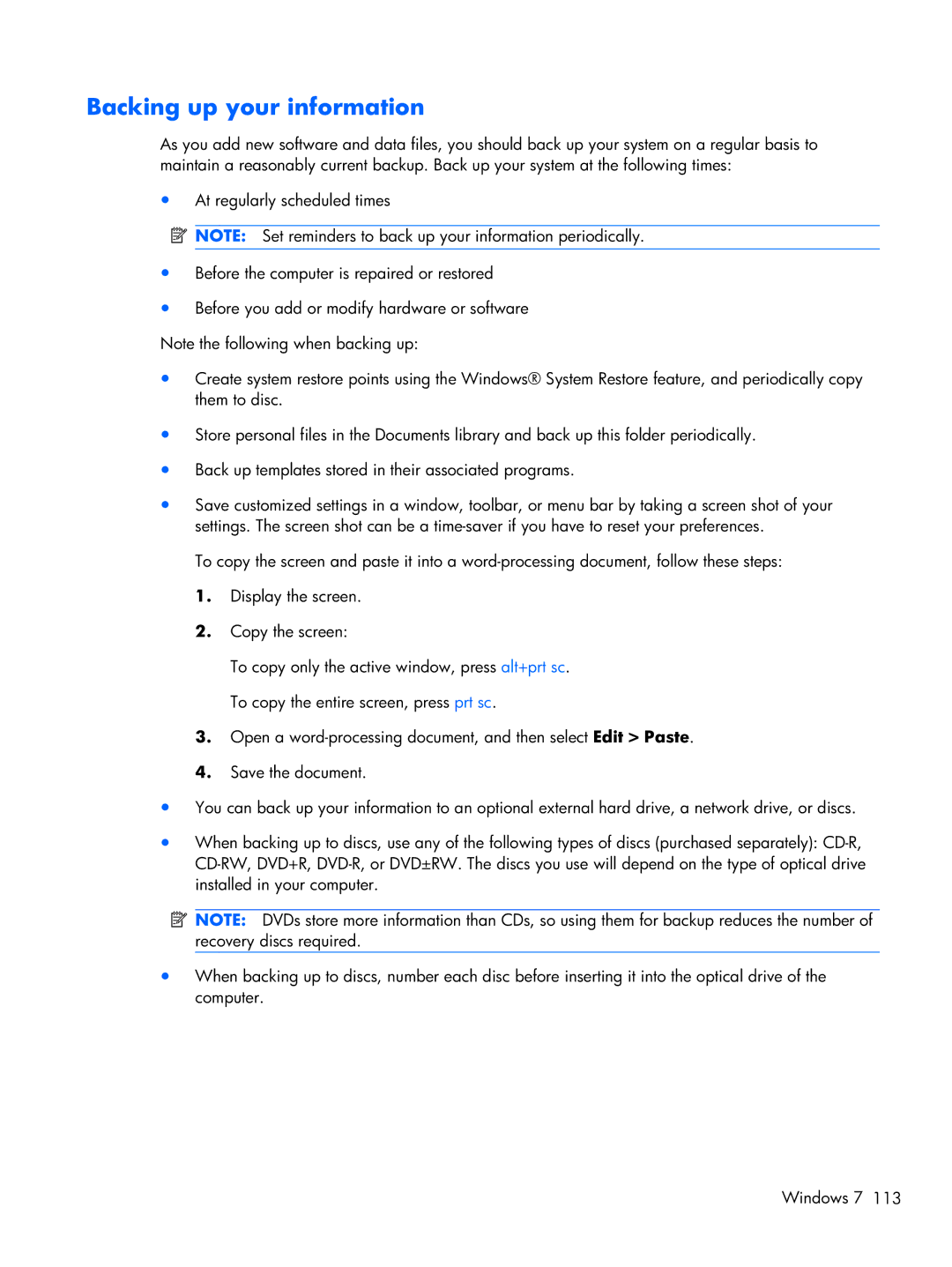
Backing up your information
As you add new software and data files, you should back up your system on a regular basis to maintain a reasonably current backup. Back up your system at the following times:
●At regularly scheduled times
![]() NOTE: Set reminders to back up your information periodically.
NOTE: Set reminders to back up your information periodically.
●Before the computer is repaired or restored
●Before you add or modify hardware or software Note the following when backing up:
●Create system restore points using the Windows® System Restore feature, and periodically copy them to disc.
●Store personal files in the Documents library and back up this folder periodically.
●Back up templates stored in their associated programs.
●Save customized settings in a window, toolbar, or menu bar by taking a screen shot of your settings. The screen shot can be a
To copy the screen and paste it into a
1.Display the screen.
2.Copy the screen:
To copy only the active window, press alt+prt sc. To copy the entire screen, press prt sc.
3.Open a
4.Save the document.
●You can back up your information to an optional external hard drive, a network drive, or discs.
●When backing up to discs, use any of the following types of discs (purchased separately):
![]() NOTE: DVDs store more information than CDs, so using them for backup reduces the number of recovery discs required.
NOTE: DVDs store more information than CDs, so using them for backup reduces the number of recovery discs required.
●When backing up to discs, number each disc before inserting it into the optical drive of the computer.
Windows 7 113
